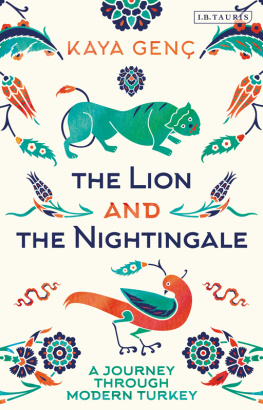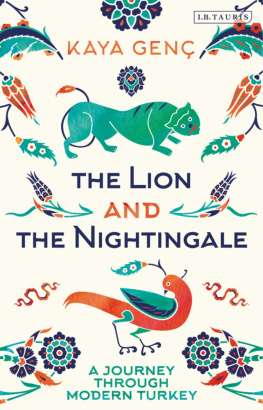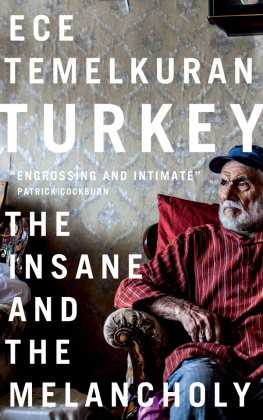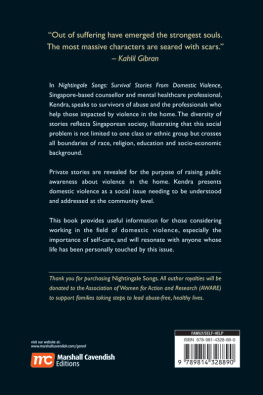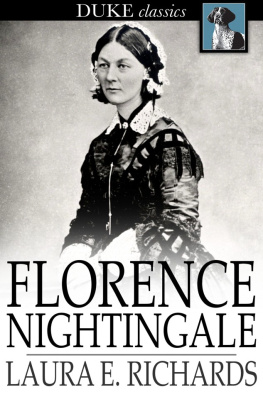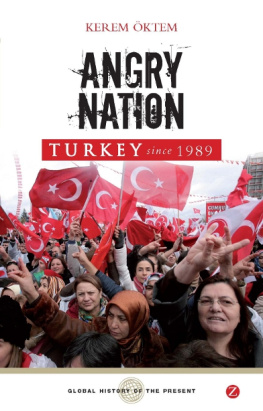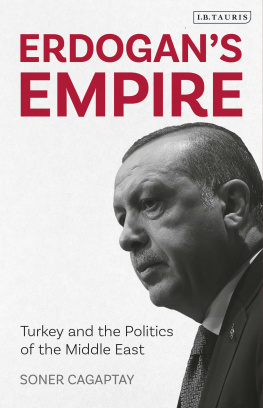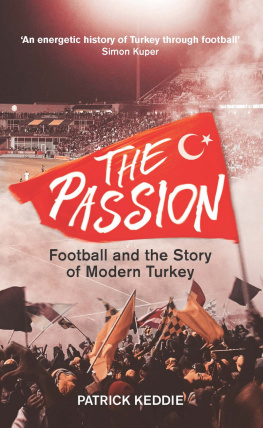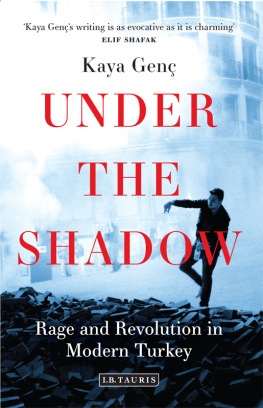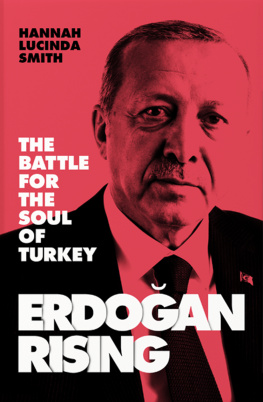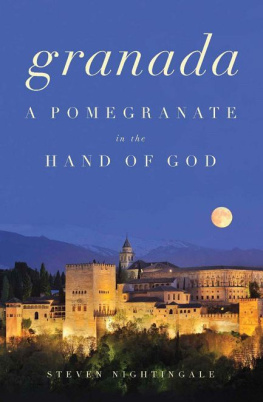The Lion and the
NightingalePraise for Under the Shadow: Rage and Revolution in Modern Turkey
I finished reading Under the Shadow a while ago, but havent stopped thinking about it. Its such an incisive, passionate, moving book, the best thing Ive read in quite some time. For whatever its worth Im reasonably well informed about world events but Under the Shadow increased my knowledge of Turkey, from its politics to its people, by approximately ten fold. We need books like it in order to get a fuller picture, certainly fuller than the news can provide, of life and crisis, of how life and crisis co-exist, in places where we do not live ourselves Michael Cunningham, author of The Hours
A fascinating and informative compilation that represents both investigative and literary journalism at their finest Publishers Weekly
A cartographer of the battlefield Mr. Gen is refreshingly balanced a subtle guide to the wrenching changes Turkey is undergoing, and his testimony is rich in historical and cultural detail He has announced himself here as a voice to be listened to as Turkey struggles to come to terms with itself The Economist
Kaya Gen is that rare beast: a freely operating Turkish writer who is able to give you an eye-level view of what is happening in Turkey right now Christopher de Bellaigue, contributor to The New York Review of Books and author of The Islamic Enlightenment
Provides pen portraits of young Turks across the spectrum, divided in politics but united in their passion brings some historical knowledge to bear on the present day encompassing so broad a spectrum is certainly a good idea Gen should be applauded for his polyphonic portrait The Times Literary Supplement
Under the Shadow serves as an excellent field guide for Turkeys emerging generation The National
Kaya Gens words always touch a hidden truth in things Jenny White, author of The Sultans Seal
Kaya Gen converses across borders, while forging his own distinct voice and perspective and challenging dominant narratives Maureen Freely, author of The Enlightenment
A celebration of the youth of the country a great read, particularly for those of us who are tired of being fed the latest development without having digested and categorized what has already happened There isnt one dull story Each life story is told with excellent pacing by Gen Nagihan Halilolu, author of Narrating from the Margins
Excellent book, journalistic, insightful and beautifully written, without passing judgement on the passionate people whose lives are chronicled Kareem Shaheen, Istanbul correspondent for the Guardian
An elegantly-written and illuminating portrait of Turkeys angry youth Alex Christie-Miller, contributor to The White Review
This should be required reading for all Turkey observers Audrey Williams, program coordinator at Turkish Heritage
Illuminating, thorough, and well-written Laura Turner, contributor to The Washington Post
Under the Shadow is both complicated and absolutely necessary Paste Magazine
M onths before it began, 2017 promised to be a sorrowful year for Turkey. Most of us drew little hope from the New Year. In the preceding months, the country had turned into a land of calamity, and we were used to living in a state of anxiety. Bombs, repression and political instability had become everyday news. We had gone through a season of disappointment, humiliation and tragedy, both public and private. Why would 2017 be any different? Turkey could make pessimists of us all, but rarely on this scale. Never before had the country appeared this precarious, its political future hanging so strongly in the balance. The year was yet a blank page, but a glance at it filled one with angst.
In the first week of December 2016, the BBC asked me to come over to their Istanbul studios to record an interview concerning my predictions for the upcoming year. The offices of the broadcaster had moved, from the citys elite Nianta neighbourhood to Gmsuyu, the urban district in the northern, European side of Istanbul where the writer James Baldwin had lived in the 1960s. The new BBC offices were located on the top floor of a building named after Mithat, an Ottoman pasha responsible for modernizing the Ottoman Empire in the nineteenth century, who was assassinated in a prison cell after being charged with the murder of Sultan Abdlaziz.
On the day of the interview I woke up at 6.30 am. A London journalist, on his nightshift, would conduct the talk. There is a three-hour difference between British and Turkish time zones. It would be the days last assignment for him, and its first for me.
A young staffer opened the door. He looked sleepy. A cold wind blew outside. The rain had an icy quality. The sidewalks were frozen. In a building nearby, the curator duo Michael Elmgreen and Ingar Dragset were announcing the conceptual framework for the 2017 Biennial (A Good Neighbour) to a group of journalists, whose tweets I read while waiting. The staffer offered to brew coffee. As he did that, I walked to the other end of the BBC office. I entered a room that offered commanding views of Dolmabahe, the most exquisite of Ottoman palaces, as well as Vodafone Arena, the recently opened stadium of Beikta, a major Istanbul football club. Thick black curtains hung on the walls. I realized this was a fully equipped television studio. Walking past large cameras that waited in a state of hibernation, I imagined BBC correspondents filling the room in the upcoming months. From there, they would report on Turkey, a country that represents, for many British people, a holiday destination before anything else. Would this new studio bring cheerful news to the British taxpayer? To their eyes, did Turkey still seem like a safe country where they could take refuge during rainy London days? In the following months, I would meet many of them, in England, during book tours, and I would remember this moment.
There was one constant about 2017: the constitutional referendum in April. People would be asked if they agreed to change Turkey from a parliamentarian democracy to a presidential system, an alarming prospect for liberals concerned with Turkish democracy. During the interview, I talked about the legal deliberations that awaited the nation. The new system was pushed by the current president, Recep Tayyip Erdoan. The majority of the Turkish political leaders opposed it. I told the interviewer about my fears for a new wave of terror attacks. In the recent months, both the so-called Islamic State (ISIL) and the Kurdistan Workers Party (PKK) had vowed to destroy Erdoans Turkey.
On 10 December 2016, a week after the BBC interview, in a western Istanbul neighbourhood called Baclar, a suicide bomber put on an explosive vest. He was assisted by a headscarved woman who drove a Chevrolet Aveo car loaded with 400 kilograms of TNT explosives. They headed to Vodafone Arena, the stadium seen from the BBC offices. The double suicide attack resulted in the deaths of forty-four. One hundred and sixty-six people were injured. Kurdistan Freedom Falcons, an offshoot of the PKK, claimed responsibility for the attacks. On the night of the violence, I watched the news alongside a journalist friend. He wondered if the government should declare martial law.

